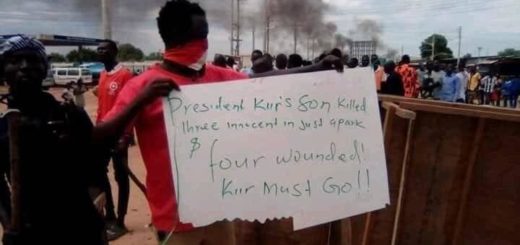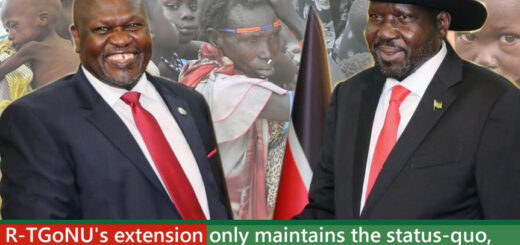Experts criticise Nairobi Peace Talks for ignoring root causes, question motives of participating groups

Several regional and international experts contend that the Nairobi talks are doomed because of the shortsighted approach to focus on reintegrating holdout groups into the existing peace agreement rather than addressing the root causes of the conflict.
The talks, inaugurated by Kenyan President Ruto in a grand ceremony at Nairobi State House attended by six presidents, were “aims to reignite hopes for peace” in a nation marred by years of conflict and instability.
Despite the high-profile launch of the opening ceremony, skepticism loomed large. SSOMA, comprising of the main holdout groups, issued a statement announcing its non-participation in the process, asserting that it fails to address the fundamental grievances driving the conflict.
Several reports and analyses followed shortly thereafter painting a grim picture of South Sudan’s current state, casting doubt on the effectiveness of the peace initiative and questioning the motive of the holdout groups involved in the talks.
One political commentator called Sindani Sebit Ireneaus took to social media arguing that these talks were doomed even before they began, dubbing them a “stillbirth.” He vividly captured the moment Lieutenant General Sumbeiywo, the chief negotiator, revealed a stark truth in his opening statement that the talks were not intended to address the root causes of the conflict but rather aimed to incorporate holdout groups into the existing peace agreement (R-ARCSS).
These scepticisms and the efficacy of the talks in bringing about lasting peace in South Sudan find resonance in the analysis by another prominent political analyst named Woldemariam.
Woldemariam’s analysis published from London entitled ‘A young nation teeters on the edge of collapse’, highlights several key concerns. Firstly, the focus of the negotiations on reintegrating holdout groups into the existing peace agreement rather than addressing the root causes of the conflict has been criticized as shortsighted. This approach, he argues, fails to tackle the underlying issues fueling the strife and risks perpetuating the cycle of violence.
Furthermore, concerns linger regarding the motives of the holdout groups involved in the talks. There are suspicions that some may be driven by self-interest, seeking personal gain or political power rather than genuine efforts towards peace. This raises doubts about their commitment to resolving the conflict and their ability to contribute meaningfully to the implementation of any agreement reached.
As the fate of South Sudan hangs in the balance, and the call for urgent action is needed to prevent its collapse, NAS, through SSOMA remains committed to the Rome Initiative and is ready for a peaceful dialogue to resolve the root causes of the conflict in South Sudan through a Roundtable Conference.
It is worth noting that SSOMA has also welcomed the participation of Kenya as a co-host should it wish to get involved in the Rome Initiative.
In light of the challenges facing the Nairobi peace talks and SSOMA’s position towards the mediation, it is imperative for stakeholders to rally behind alternative initiatives aimed at addressing the root causes of the conflict in South Sudan.
NAS, together with its partners in SSOMA remains committed to the Rome Initiative and is ready for a peaceful dialogue to resolve the root causes of the conflict in South Sudan through a Roundtable Conference. Together, let us work towards a peaceful resolution and a prosperous tomorrow
###
Related:



